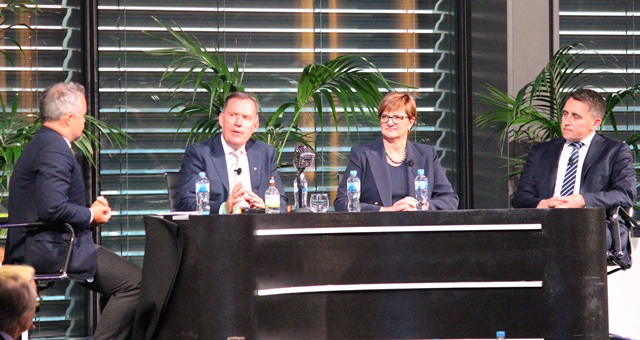A sense of optimism permeated a socially distant, but highly resolved room of hotel industry professionals on the first day of the 2020 Australian Hotel Industry Conference and Exhibition (AHICE), headline sponsored by Intrust Super and Hostplus.
Performing to a room at its government-mandated capacity of 150, the total audience was around 700 when factoring virtual registrations watching from homes and offices around Australasia and around the world.
Festivities for 2020 kicked off with a presentation by STR Regional Manager – Pacific, Matthew Burke, who crunched vast sums of numbers for delegates, outlining both the impact that has been withstood and what is projected to come.
Burke highlighted a two-speed economy that has emerged, forecasting a positive outlook for the leisure sector and green shoots signalling a return in business confidence on a slightly longer term.
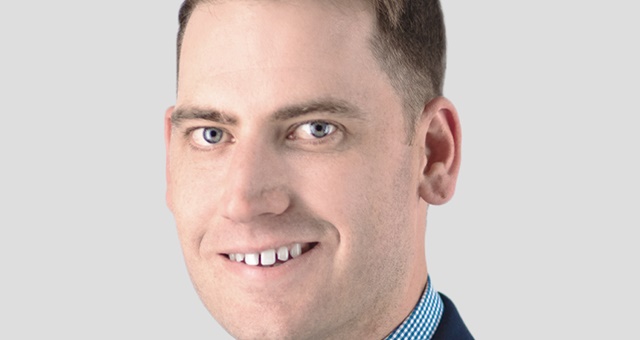
He also showed delegates that the leisure market is sending occupancies in regional centres to significant levels, with peaks during the recent school holidays. At the same time, leisure markets are taking to cities for luxury ‘Staycations’ although with much higher capacity, these numbers are proving to be welcome blips on the radar for hotels waiting for business markets to return.
In a highly analytical presentation, Burke showed results both with and without results in Victoria, which continues to deal with the worst that a second wave of COVID-19 has played out in Australia.
Despite the slump in occupancy levels that Australia has witnessed for much of 2019, Burke said Australia and New Zealand were in the middle of a development boom which shows investors are being patient and settling in for a longer-haul yield, happy to ride out the COVID storm and usher in better times in the years to come.
READ MORE data analysis from STR.
HM Editor-in-Chief, James Wilkinson, took the stage next for the first in a series of Q&A discussions, kicking things off with prominent hotel investor, Dr Jerry Schwartz, who praised the news which has broken that morning of discussions beginning to unite the two industry associations – Tourism Accommodation Australia and the Accommodation Association.
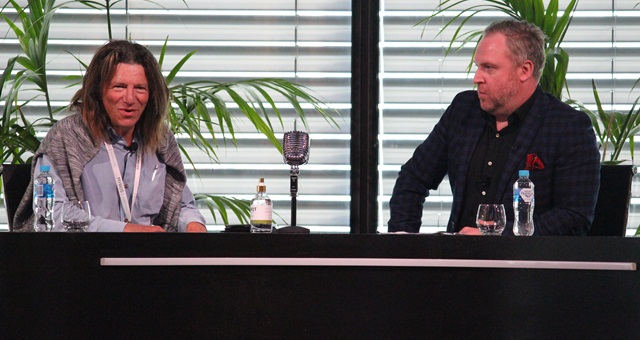
Schwartz spoke of the positive impact that JobKeeper has made to the wider hospitality sector, which had allowed him to keep most of the staff at his network of hotels engaged and working. He spoke of the demand at his regional properties and recently-upgraded resorts.
“It’s a real thrill to go to my regional properties on weekends and the foyers are full of people. It’s to be expected – people want to get out and the safest way to travel is by car and for the average person to be able to get away from the life we’re leading at the moment, it’s a very fortunate thing.”
For the next session, James shifted to Melbourne where Choice Hotels Asia-Pac CEO, Trent Fraser dialled in to speak to delegates. Fraser reiterated that while the company’s franchisees were helping each other through the tough times, there were sporadic examples of positivity coming from the Choice hotel network.
“I think the challenge has been around the uncertainty, when we can travel and when borders might open up. We’ve all been naturally optimistic but this has played out for longer than we all thought it would,” he said.
“The borders opening up will be one thing, but who knows when people will be comfortable to actually travel and meet up again,” Fraser added.
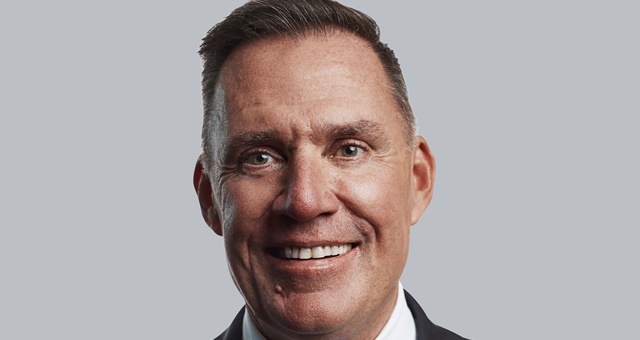
In a new segment for AHICE 2020, roles were reversed as interviewees took control of the question book, with Accor Pacific Chief Operating Officer, Simon McGrath, taking the host’s chair to interview Helloworld Travel Limited CEO, Andrew Burnes.
Burnes said that while he always thought COVID-19 was going to be bad, he could never have expected the twists and turns that the pandemic would take the country.
“In terms of international travel, it’s going to be a longer and harder road and is going to involve a lot of bilateral agreements,” Burnes said.
McGrath quizzed Burnes on how travel and tourism can have a better voice with government.
“I think something that will help our industry have better traction with government is employment – this is a far-reaching industry,” Burnes said.
“I think it is safe to travel on a plane and people need to be convinced that is the case. People want to get away safely and airlines, hotels, cruise lines all have to introduce protocols to reassure travellers they are safe.”
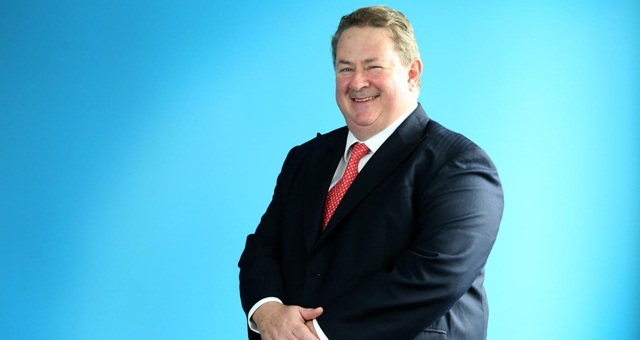
James Wilkinson then returned to the stage for a chat with Pro-invest Group CEO, Ronald Barrott, with the message centred on the return of the corporate traveller.
“People will travel, whether it be on holiday or on business, but we’ll travel differently and the companies that tap into that the best will be successful,” Barrott said.
InterContinental Hotels Group CEO – Europe, Middle East, Asia and Africa, Kenneth Macpherson was the next to contribute, addressing delegates from his London home office in the form of a pre-recorded video. In his address, Macpherson urged hotels never to take their eye off the guest experience as government restrictions and rules continue to be introduced and enforced.
“It’s going to be all about how we respond to these challenges amid rapidly changing guest expectations. In a hotel now, you’ve got to do more, better, faster and that’s just the environment we’re in,” he said.
“We are very clear in our responsibility to play a role in the wellbeing of guests, our staff and the communities we operate in. In this time of uncertainty, we’re going to focus on the things we can control. We’re backing our industry and we certainly hope you will too.”
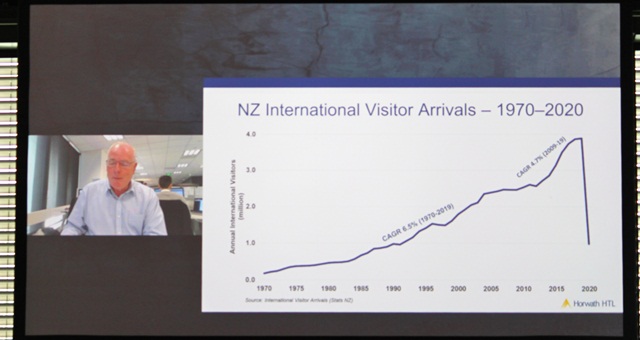
From London to Auckland, the next industry update was provided by Horwath HTL New Zealand Managing Director, Stephen Hamilton, who joined the event from his office in Auckland.
Hamilton’s presentation began with a confronting and sobering graph showing just to what state of free-fall the inbound tourism market had witnessed since the COVID-19 pandemic struck. Long-term levels showed that numbers were back at levels not seen for five decades. Hamilton showed the more immediate impact seen by natural disasters such as the Christchurch earthquake of 2011 versus the sustained hit brought on by the pandemic.
Remaining in New Zealand, the first panel discussion of AHICE was next on the agenda, with James Wilkinson moderating a discussion on the NZ and South Pacific market.
Accor Senior Vice President Operations – New Zealand, Fiji & French Polynesia, Gillian Millar, said the most recent lockdown in Auckland was highlighting the level of fatigue being experienced by locals, with Millar calling for the government to adapt its response to suit the changing mood.
Sudima Hotels COO, Les Morgan, said there was momentum building in several parts of New Zealand, especially Christchurch, where a new convention centre was due to open next year.
CP Group Asset Manager, Terry Ngan, spoke about a strong supply chain of hotels set to open across the country in the coming months, supported further by the introduction of his own recently-announced boutique chain, Fable Hotels & Resorts.
“I have confidence that there is room in the market for a boutique hotel chain,” Ngan said.
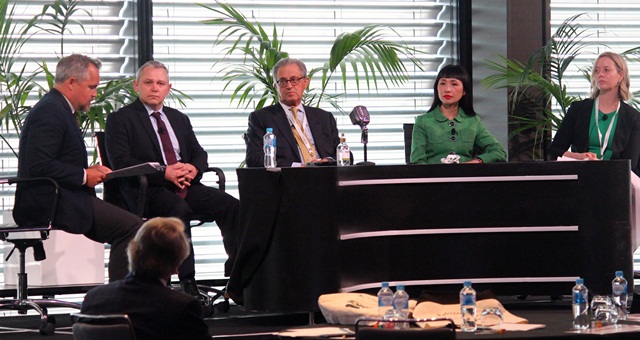
The future of hotel leases and rent discussions was the next topic to be covered, with a panel discussion next on stage, hosted by Withers Worldwide Head of Hotels, Robert Williams.
The panel discussed at the current environment of waivers and deferrals being utilised by tenants and landlords and how important it is for all parties to be coming together constructively with dialogue.
In the leasing segment, the panel studied the ‘force majeure’ clause which is finding its way into more lease conversations at the moment as tenants are struggling to pay rent in the current trading environment. Williams asked the panel of experts for their opinions on whether a hotel management agreement would be a better option than a lease in the event of a pandemic or other major market event in the future.
“I think it’s worth taking a punt on a differently structured lease,” said Baker McKenzie Partner, Roy Melick.
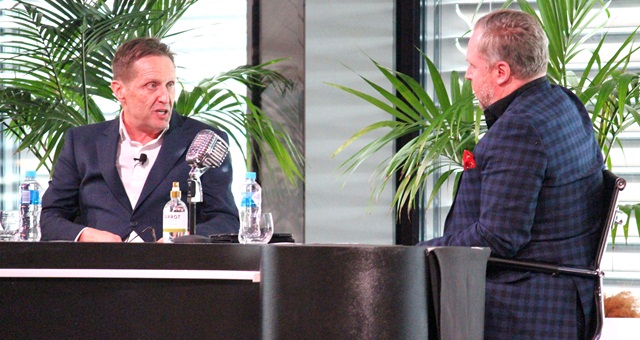
The first session of AHICE 2020 came to an end with a Hotelier Q&A segment, as James Wilkinson chatted with Event Hospitality Director of Hotels and Resorts, Norman Arundel.
The conversation began with a reference to the Australian ski industry and Event’s Thredbo Alpine Resort, highlighting the sector as a key example of how people can travel safely and enjoy a holiday in the current environment.
Arundel said he was excited at the company’s upcoming hotel opening being The Oval Hotel at Adelaide Oval in the South Australian capital.
“We see a real niche in the market for independently branded hotels that want to be part of a bigger organisation,” Arundel said.

After a break, AHICE continued with the next panel discussion and the first part of the popular point of ‘What Owners Want’, moderated by Colliers International National Director of Hotels, Nigel Greenaway.
Among the panellists, the general consensus was that maintaining the integrity of hotel rate structures was critical and that brands must not chase occupancies by lowering rates to unsustainable and damaging levels.
Greenaway posed a number of intriguing questions to his panel contributors, asking Salter Brothers Director of Hotels, Steven Skarott, how hotels can avoid adding to their cost base during a period of low occupancy.
“I’ve seen a lot of innovation in the sector and as hoteliers, we need to look at a lot of what is out there and put it into practice,” he said.
“There are customers that are a lot more comfortable using technology. We have to embrace that, push for change and set new benchmarks.”
“At the end of the day, we are in a very simple business which hasn’t changed since Mary and Joseph were looking for a room at the inn,” added CapitaLand Head of Asset Management, Grant Alchin.
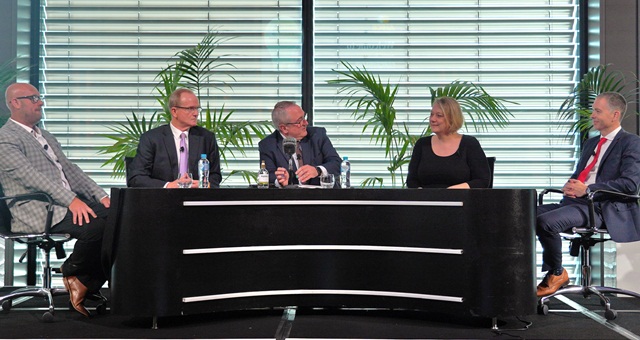
James Wilkinson returned to the stage next for the next Hotelier Q&A with Hyatt Hotels Corporation Group President Asia Pacific, David Udell, with the imminent opening of Park Hyatt Auckland a hot topic of discussion.
Speaking online from Hong Kong, Udell said the addition of new brands into established markets would be supported by the movement of key development staff, led by the recent relocation to Melbourne of Hyatt’s Vice President of Development, Monika Dubaj, from Hong Kong in recent months.
“The pandemic has been a great learning curve for all of us and we must be agile and efficient in jumping on challenges and opportunities,” Udell said.
The first of two presentations from the industry associations was up next, with Accommodation Association (AA) CEO, Dean Long, who affirmed his support for the news that AA and fellow industry advocate, Tourism Accommodation Australia, would be working more closely together as discussions begin to unite the two parties for the greater good of the sector.
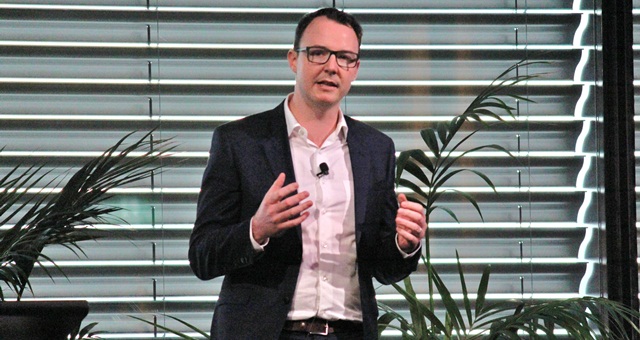
Long said the Association was right behind the plight being experienced by its Victorian members but that the biggest issue that has been faced in the state recently was the hotel quarantine crisis, which has been blamed by some as a catalyst for the second wave which sent the state into Stage 4 lockdown.
“The Association and our partner members has done its utmost to make sure the good work done by the sector is being understood and celebrated,” Long said.
“It’s absolutely critical that we look after talent and when borders open, we need to make sure we have our people behind us.
“The more Australians we can get engaged in this industry, the better our recovery will be,” he added.
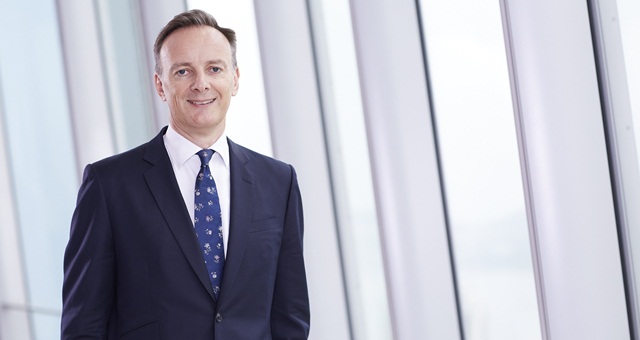
Next to speak to delegates was Swire Hotels Deputy Chairman, Toby Smith, who dialled in virtually from self-quarantine in Sydney to speak to James Wilkinson on-stage.
Smith spoke of his desire to bring the East Hotels brand to Australia in the near future.
“We feel that the luxury lifestyle brand does have opportunities in Sydney and Melbourne,” Smith said.
“Sydney and Melbourne are world class cities, and we want to be in world class cities.”
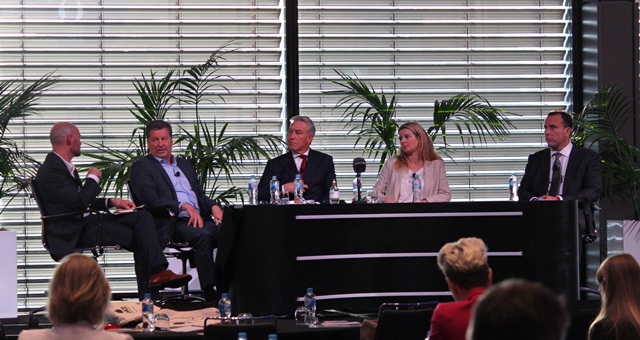
The next panel discussion then got underway on-stage, with Minett Prime Square Director, Arnaud Millecamps conducting the 2020-21 Real Estate Investment Outlook, featuring panellists from HTL Property, Colliers International, JLL Hotels and CBRE Hotels.
The panel discussed many parts of the real estate sector, with distressed stock and owners looking to get out of a damaged industry a particular talking point.
“Banks will show more favour towards owners who are able to trade during a market downturn,” said Colliers International National Director, Karen Wales.
“If there’s too many assets to buy and not enough buyers, the market is going to capitulate,” added CBRE Hotels’ Michael Simpson.
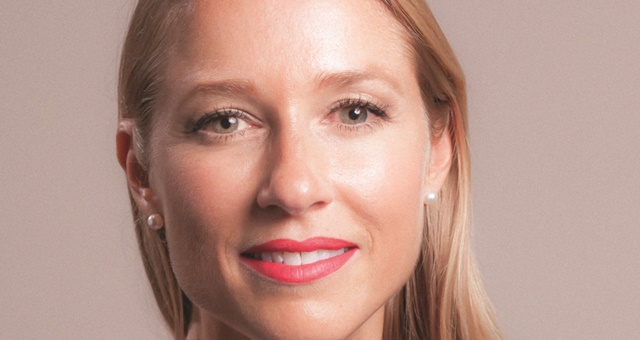
Radisson Hotel Group was the next brand under the spotlight, as James Wilkinson linked up once again with Asia as the company’s Asia President, Katerina Giannouka, joined the conversation.
Discussing the growth in the Asia Pacific region of the company’s lifestyle brand, Radisson Red, Giannouka said the brand was living up to its significant potential and appeal with investors.
The final panel session of the day rounded out the day’s proceedings, with Robert Williams from Withers Worldwide returning to the stage to conduct ‘The Hoteliers Outlook’ discussion with IHG’s Leanne Harwood; Radisson Group’s Mark Bullock; Accor Simon McGrath and Marriott International’s Sean Hunt, who dialled in from the soon-to-be JW Marriott on the Gold Coast.
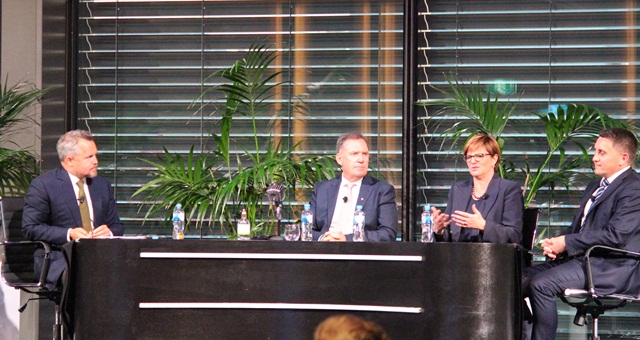
The four industry leaders tackled the big issues of front-line employment through the pandemic and the difficult decisions that needed to be made at hotels that were forced to close and those at head office unable to be saved by JobKeeper.
“We put leave-without-pay plans in place pretty quickly and took on pain both on-property and off-property, which we thought was the right thing to do,” Hunt said.
“The most challenging part has been the people aspect, no doubt about it. We moved early, which has helped us from a corporate cash flow perspective,” Bullock added.
Simon McGrath said the owners of Accor properties have been incredibly understanding and easy to deal with throughout the hardest days of the pandemic.
“When you’re fighting for survival, you don’t have much time for conflict,” said McGrath.
AHICE continues tomorrow with a full day of activity emanating from the Hyatt Regency Sydney. Keep your eye on HM as the latest news and an expected flurry of new hotel announcements hit the airwaves.

